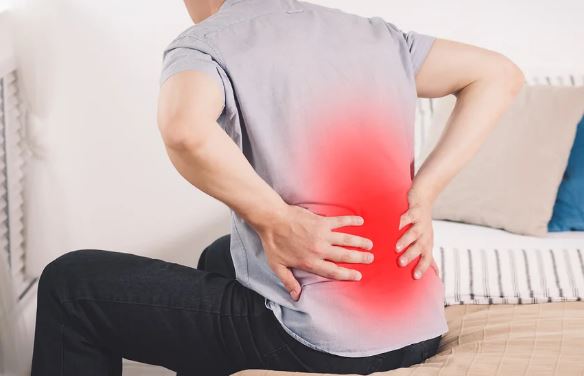Faced with the question of why the kidneys can hurt, there is no single answer. The first thing to say is that it is not often that these organs have pain, so this symptom should always be taken very seriously.

Now there are many myths about why the kidneys can hurt. It is popularly believed that this discomfort is due to the fact that the back is not well covered and the cold “gets into the body” so that it ends up causing pain. This and other beliefs like that are false.
To this error is added the fact that many times we do not know how to identify precisely the area in which the discomfort occurs. Sometimes we wonder why the kidneys can hurt, but in reality, the pain takes place in a different area.
Why can the kidneys hurt?

The kidneys are vital organs that play a fundamental role in the body. Basically they are responsible for filtering the blood to keep it clean and balanced from the chemical point of view. They process about 190 liters of blood per day and dispose of approximately two liters of waste in the same period.
The kidneys are located in the back of the abdomen, just below the ribs and on each side of the spine. When these organs ache the sensation is experienced in the middle of the back or on the sides of this area. Sometimes it hurts on only one side. However, not all backaches are kidney pains.
Many kidney diseases are silent until they are advanced. The reasons why the kidneys can hurt range from the presence of kidney stones to kidney cancer. The following are some of the frequent reasons why this annoying pain occurs.
Kidney stones
Kidney stones, known as “kidney stones” or “kidney stones,” generate severe pain or nephritic colic. The stones are formed by the accumulation of substances present in the urine. Sometimes they are as small as a grain of sand, but they can reach the size of a pearl.
When the stones are very small they move freely through the urinary tract and are usually expelled without any symptoms. On the other hand, when the stone is larger, it generates a strong pain that occurs in waves, feels in the back or lower abdomen and worsens with movement.
The most common is that the pain is located on one side, but with the passing of the hours, it descends and covers the groin and genital area. The discomfort is not relieved in any posture and is usually accompanied by nausea, vomiting, and burning or burning when urinating.
Infection

Faced with why the kidneys can hurt, one of the answers is the presence of an infection. The most common is that this infection begins in the urethra or bladder and then goes up to the kidneys. This can cause permanent damage to those organs or spread in the bloodstream and put lives at risk.
One of the symptoms is a deep and persistent pain in the back, as well as pain and burning when urinating. They often feel like going to the bathroom and the urine emits a rather strong smell. It is not uncommon that there is also nausea, vomiting, fever, and chills.
Polycystic kidneys or cyst
A cyst in the kidney may not cause any symptoms until it reaches a significant volume. When this case occurs, strong pain appears in the back and/or on the lower sides of the back. Headache and bleeding in the urine are also common.
Polycystic kidneys have to do with a genetic disease that forms groups of cysts that grow and prevent the organ from functioning properly. They cause lateral or back pain and often lead to frequent stones and infections.
Other causes of pain
The kidneys can also ache from hydrofrenosis, which is a renal inflammation due to the accumulation of urine. It causes deep back pain, in addition to bloody urine and fever. The pain can also be motivated by thrombosis of the renal vein; a serious problem in which there is severe pain in the back, behind the lower part of the ribs and in the hips.
Injuries and bumps also result in kidney pain, as does the state of pregnancy. In the latter case, it is due to alterations of the spine due to the weight of the belly. Pain on the side of the back and abdomen, simultaneously and accompanied by hematuria, can be a symptom of kidney cancer.



